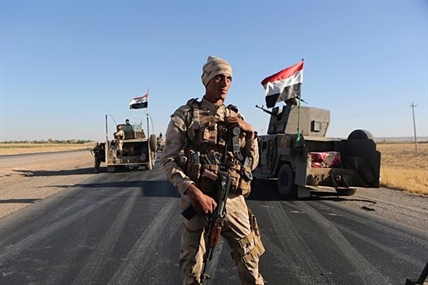Elevate your local knowledge
Sign up for the iNFOnews newsletter today!

OTTAWA – Canadian soldiers in Iraq have been ordered to temporarily suspend all operations with Iraqi and Kurdish forces following a series of battles between the two groups.
The surprise move comes amid accusations Canada and its allies have failed the country over the past three years by ignoring its many political, religious and economic divisions while fighting the Islamic State of Iraq and the Levant.
Canadian special forces have provided training, advice and assistance to both the Iraqi military and Kurdish peshmerga for the past three years as part of the fight against Islamic State militants.
But the one-time allies have been fighting each other for more than a week after the Kurds held a controversial independence referendum and Baghdad responded by seizing control of contested territory.
Military officials said Friday that the Canadian Forces would continue to support the U.S.-led coalition fighting against ISIL through the provision of medical aid, intelligence and transportation.
Canada has about 50 medical personnel and a tactical helicopter detachment in northern Iraq, as well as several dozen intelligence experts, a surveillance aircraft, a transport plane and an air-to-air refueller in Kuwait.
But the approximately 200 Canadian special forces in Iraq have been told to sit tight and will not provide any training or assistance to Iraqi or Kurdish forces until relations between the two sides improve.
"Given the fluidity of the current situation, Canada's Special Operations Task Force has temporarily suspended the provision of assistance to various elements of Iraqi security forces," spokesman Col. Jay Janzen said.
"Once more clarity exists regarding the interrelationships of Iraqi security forces, and the key priorities and tasks going forward, the task force will resume activities.
"In the interim, they will continue to monitor the situation and plan for the next potential phases of operational activity."
While Friday's decision to suspend operations with Kurdish and Iraqi forces was a surprise, the fact the two sides have come to blows has long been predicted by observers and experts.
In fact, a senior representative for Iraq's Kurdish government accused Canada and its allies this week of failing to address the many long-standing divisions that led to ISIL's birth — and which are threatening to erupt again.
Canada and its allies have been relatively quiet about what is happening, with Defence Minister Harjit Sajjan echoing U.S. statements urging all sides last week to focus on finishing the fight against ISIL.
But Bayan Sami Abdul Rahman, the Kurds' top diplomat in Washington, said it's past time the international community end its "laser focus" on ISIL and begin to address Iraq's many underlying problems.
"'We are laser-focused on (ISIL).' That has been the mantra of the past few years," Abdul Rahman told The Canadian Press during a visit to Ottawa this week.
"But to continue to say we're laser-focused on (ISIL) is missing the obvious truth of what is happening in Iraq."
While many fear a war between Baghdad and the Kurds, there are also concerns about the slow rate of reconstruction in many Sunni-dominated areas liberated from ISIL, and Iran's growing influence in Baghdad.
Want to share your thoughts, add context, or connect with others in your community?
You must be logged in to post a comment.